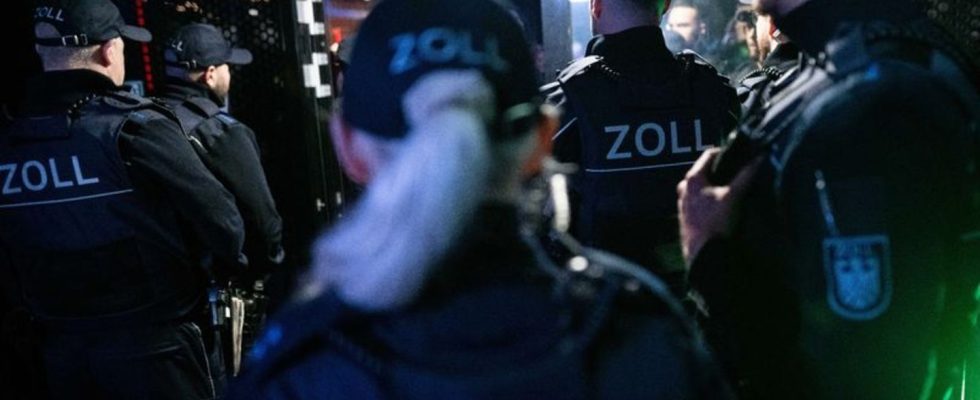North Rhine-Westphalia
650 police officers deployed in a raid against the bouncer scene
Customs officers stand in front of a club during a raid. photo
© Fabian Strauch/dpa
In the middle of the party life on Saturday evening, the police showed up in many North Rhine-Westphalia cities: the raid was aimed at the bouncer scene. Investigators suspect a connection to clan crime.
Recently, it became clear, especially during investigations in the Ruhr area, that there are repeated connections between well-known clan families and companies in the security and surveillance industry. There is often a network of subcontractors, letterbox companies and changing shareholders. Investigators suspect that such constructions in the bouncer scene serve criminal clans to circumvent regulations and evade taxes. Ultimately, it’s about earning potential “on a larger scale,” said the spokesman.
The information emerged from the work of the Ruhr Security Conference (Siko). State police, Ruhr area municipalities, customs authorities and federal police have been working together there for four years to combat clan crime in the Ruhr area.
So far, however, investigators have lacked precise information about exactly where clan-related security companies are active. The raid was primarily about shedding light on these structures.
Clan crime
The authorities describe crimes that develop from ethnically isolated subcultures as clan crime. The perpetrators in North Rhine-Westphalia mostly come from large families of Turkish-Arab origin, but according to the police, Syrian clans have recently been playing an increasingly important role. According to the State Criminal Police Office, every fifth case involving organized crime involves connections to family clans. Essen is considered a stronghold.
However, the term clan crime is controversial because, according to critics, it stigmatizes and discriminates against people with a migrant background based solely on their family affiliation and origin.

